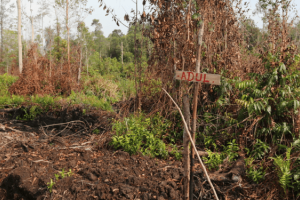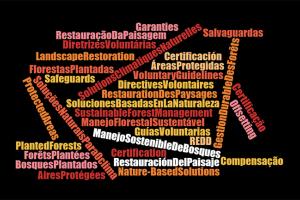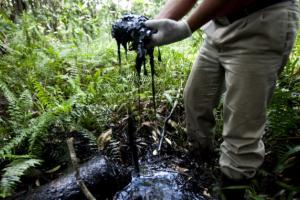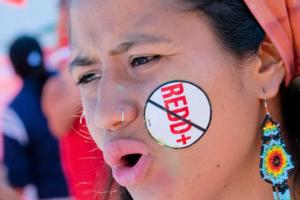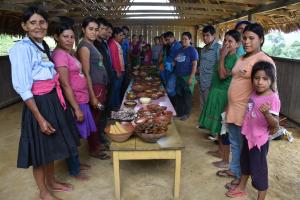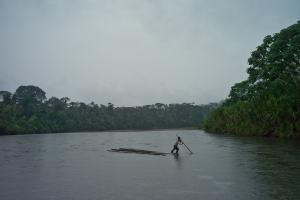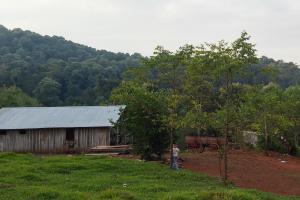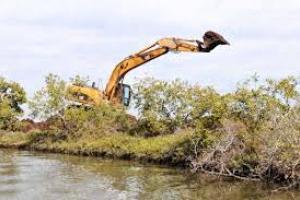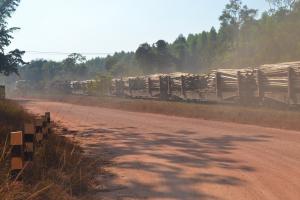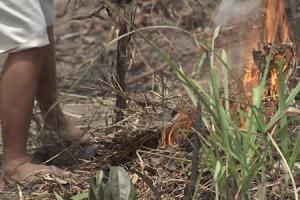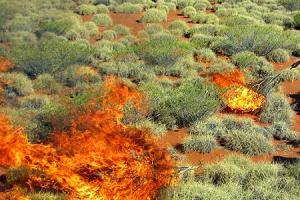Carbon offsetting and REDD
Reducing Emissions from Deforestation and Degradation (REDD+) has become the dominant international forest policy. Variations of REDD+ include Nature-Based Solutions and corporate pledges to achieve Zero Net Deforestation. In reality, though, deforestation continues, polluting companies use REDD+ offsets to avoid reducing their fossil fuel emissions, and zero-net deforestation pledges allow forests to be cleared in one area as long as an “equivalent” area is restored elsewhere.
Oil multinational Shell claims that it is possible that consumers drive “carbon neutral”, simply by paying extra for offsetting their emissions - planting trees or investing in existing forest areas elsewhere. But what is happening in those areas elsewhere? (Available in Indonesian).
Language is never neutral. Certain concepts have historically been used to dominate people and territories. This article highlights concepts that are usually presented in a positive light but that actually serve economic interests that harm forests and communities.
The UN and conservation industry discourse and propaganda over REDD+ changed to a new forest conservation fad at the UN climate negotiations in December: Nature-Based-Solutions. Another false solution that distracts from the urgent task to keep fossil fuels in the ground.
This is good news for forests, forest peoples and the climate because the IFC proposal aimed at subsidizing a carbon market for private sector REDD+ project credits for which there is neither demand nor justification.
More than one hundred organisations signed this open letter to members of the Green Climate Fund Board. The Board will be meeting from 12 to 14 November 2019, and will decide on a number of funding requests related to REDD+.
The government claims that small-scale agriculture is responsible for deforestation. But this claim ignores government policies that drive land-use changes and destructive markets as well as the exclusion of indigenous peoples through the creation of reserves.
REDD+ has shown to be a big failure for the climate, the forests and forest peoples, but many international agencies and governments continue to support it. This article takes a look at its inability to halt deforestation and the fundamental flaws of its main initiatives.
While the destruction of forest territories continues, more pledges, agreements and programs are being implemented in the name of ‘addressing deforestation and climate change’.
Blue Carbon (or Blue REDD+) appeared as a new carbon offset scheme between emissions and carbon absorption in coastal territories. However, organizations in Indonesia warn that the initiative is a strategy to change the coastal and marine territories into tradable assets .
For years, WRM has been warning many certified monoculture plantations in Brazil have been established on land for which titles were obtained fraudulently. This article discusses the case of two companies that operate in the Brazilian Amazon: Agropalma and Jari Florestal.
Forest peoples’ knowledge and practices of the use and management of controlled fire in forests have been identified within climate change policies as the cause of forest fires. Nevertheless, fire is critical for ensuring the food and cultural sovereignty of forest peoples.
Today, a capitalist conception of fire dominates. But vernacular conceptions continue to evolve and struggle against it.
